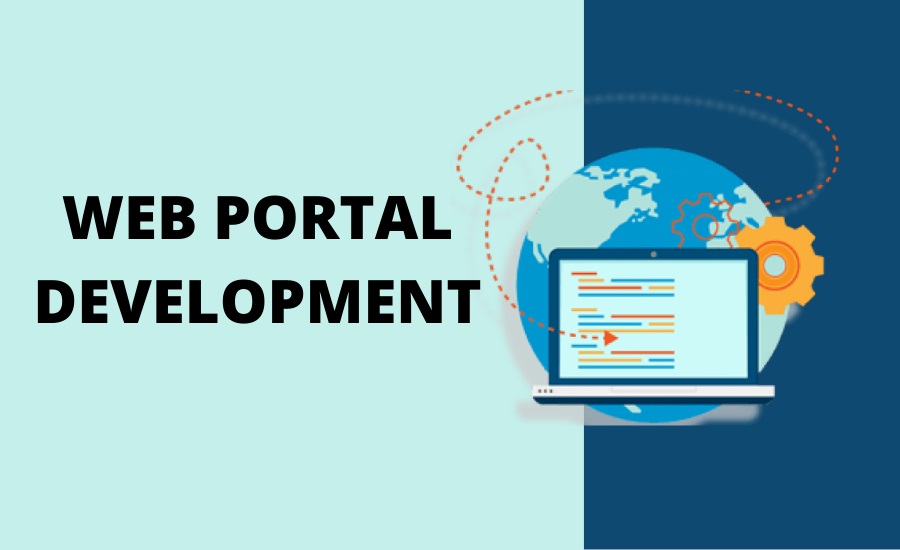
How Can Your Web Portal Benefit You?
Internet community is growing fast and furious, intertwining our lives and necessities. Any daily routine is marked by technological, digital, and e-commerce effects. We are quite dependent from gadgets, and web portals have long ago become a window to the world. Major social necessities of a citizen like healthcare, communication, and education have been seized by the variety and capabilities of web portals, that helped us survive the 2020 shock and continue renewed.
But what is a web portal and why so much fuss about it? This sort of software enables businesses to automate various operations while also dramatically increasing employee, consumer, and partner involvement. A portal web application serves as a single point of access to numerous types of information offered by the company or organization.
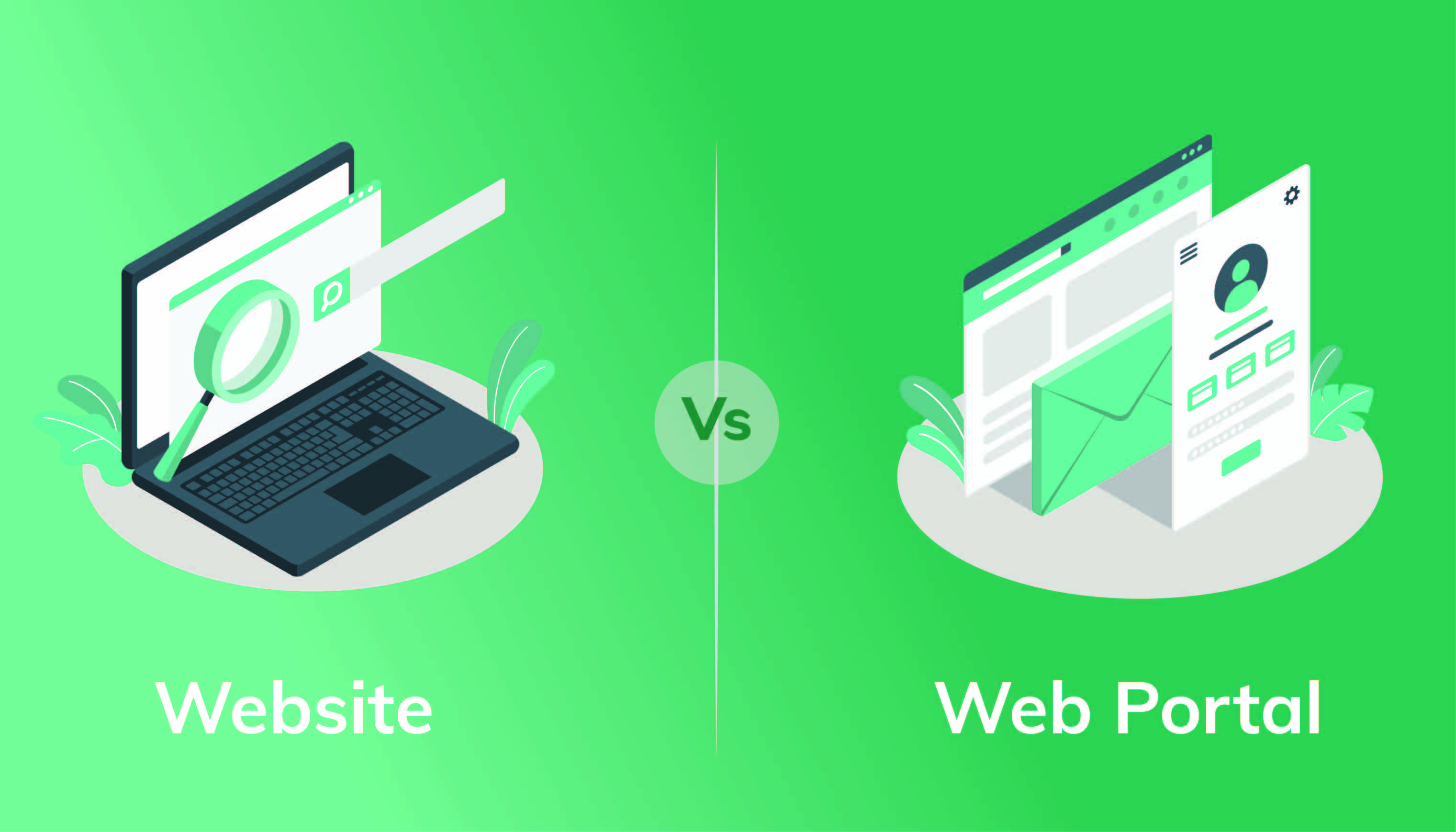
When it comes to web portal software development, many people confuse a web portal and a website since they share similar characteristics. Indeed, both are online solutions that may be accessed via a unique web address (i.e. URL). These web products, however, serve various purposes, have distinct qualities that are not interchangeable. We've created a comparison chart to help you understand what distinguishes each of these web solutions. Let's take a closer look at it to make sure we're all on the same page.
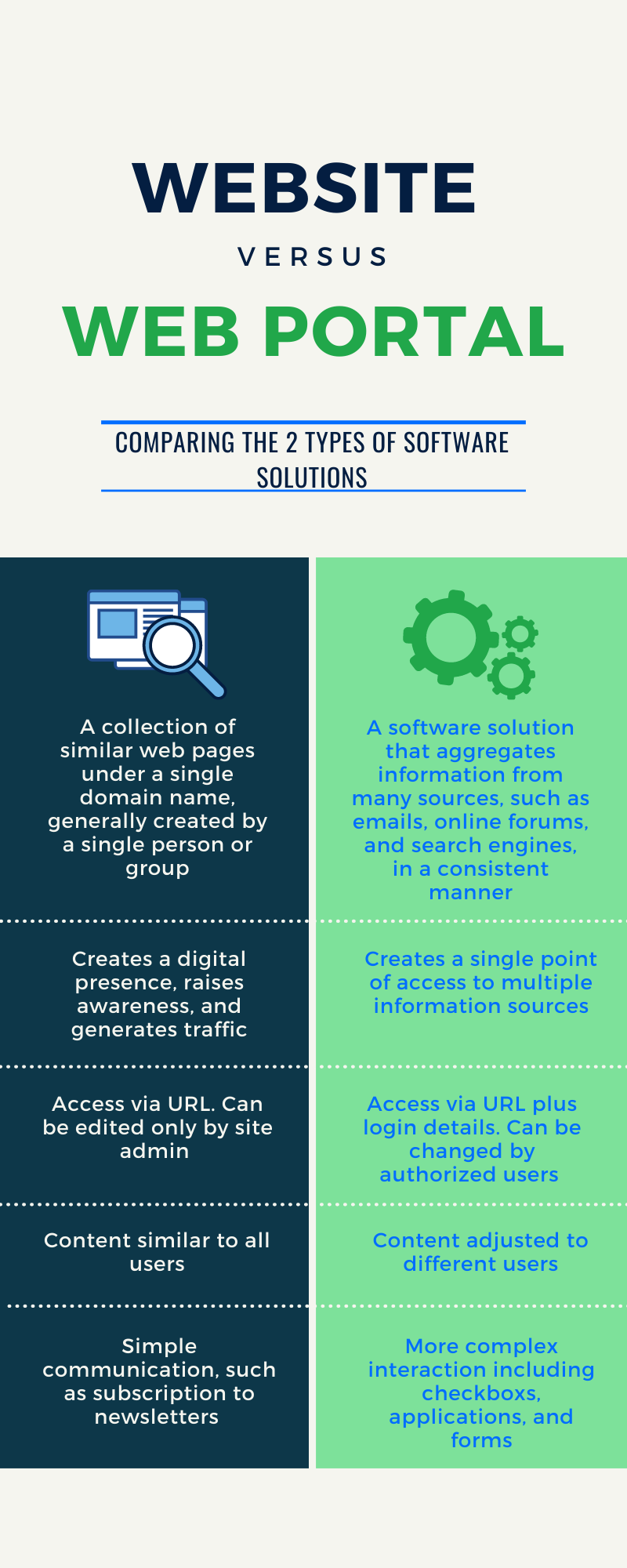
To sum up, a website is a platform that allows you to digitally expose your company/brand to the world and communicate with anybody who might be interested in its products or services. In contrast, web portals are designed for certain groups of individuals. Website material is less customized and open to all users, while web portal content is generally available once you sign up.
Web Portals Gaining Its Popularity in 2021
Last year's pandemic brought new challenges to the world. Many businesses were forced to reconsider their strategies, methods, and even the digital tools they utilized on a daily basis. Working, learning, and training from home became widely accepted in a world where society was substantially confined by virus epidemics and individuals found themselves stuck in their houses. It became difficult to remain productive in the absence of trustworthy web solutions. As a result, the necessity for new online portals emerged. After a thorough market examination, we have found the most common types of online portals that are now in demand. Let's take a closer look at them.
B2B portals
With the help of B2B (businesses-to-business) portals, big companies sell products to other small businesses. Such portals enable managing connections with many clients, distributors, and partners from a single platform. It's a place where customers can find a large product and service catalog, manage their own accounts, place orders, and establish purchasing restrictions and budgets. B2B e-commerce web page portal is an ideal choice if you want to connect teams with clients and create a better customer experience.
Successful examples of B2B portals: Alibaba, DHgate, Amazon, eWorldTrade, Fibre2fashion
B2C portals
The practice of selling products and services directly to end-users is referred to as the business-to-consumer model. As a result, the sales process is focused on the demands of a single client, and moving users from initial interest to purchase is very straightforward. Sales cycles are shorter and more emotional compared to B2B. B2C portal assures simple usage and minimizes operational expenses, needless stock, physical locations, and staff.
Successful examples of B2C portals: Apple, Amazon Prime, Amazon Originals, Expedia, Trivago, Etsy
Community portals
They are designed for people who share the same interests and want to create a network to exchange their knowledge, thoughts and experiences on a variety of topics. During pandemics, people use community portals more frequently because they make them feel less alone. Community portals cover different topics including education, healthcare, finance, information technology.
Successful examples of community portals: TechHub, My.Yorku.ca, Government Program Portal of Council of Europe, TeachersConnect, TripAdvisor
E-learning portals
We've all heard of the plethora of e-learning apps available on the market, but what about online education web portals? They are far more convenient and do not need to be downloaded. E-learning is not only a major trend right now, it is also a need that arose as a result of lockdowns and students' inability to attend schools and universities in-person. E-learning portals may give students access to a wide range of study resources, including video lectures, e-books and manuals, presentations, interactive tools, and more. Such portals may be used by both educational establishments and businesses.
Successful examples of E-learning portals: Khan Academy, Coursera, W3 Schools. TedEd, Codecademy, Open Culture, Open Yale Courses
Self-service portals
They feature web-based platforms that aggregate functionality and information from multiple sources to allow users to self-help and self-service. Customer portals, employee self-service portals (which are sometimes part of broader HR portals), government service, and patient portals are the most common types of self-service portals. The aim of any self-service portal is to assist users in addressing common needs efficiently and without outside help.
Successful examples of self-service portals: Forest Hills Pediatrics, Bosch Smart Home, Spire, Inc., Getjobber
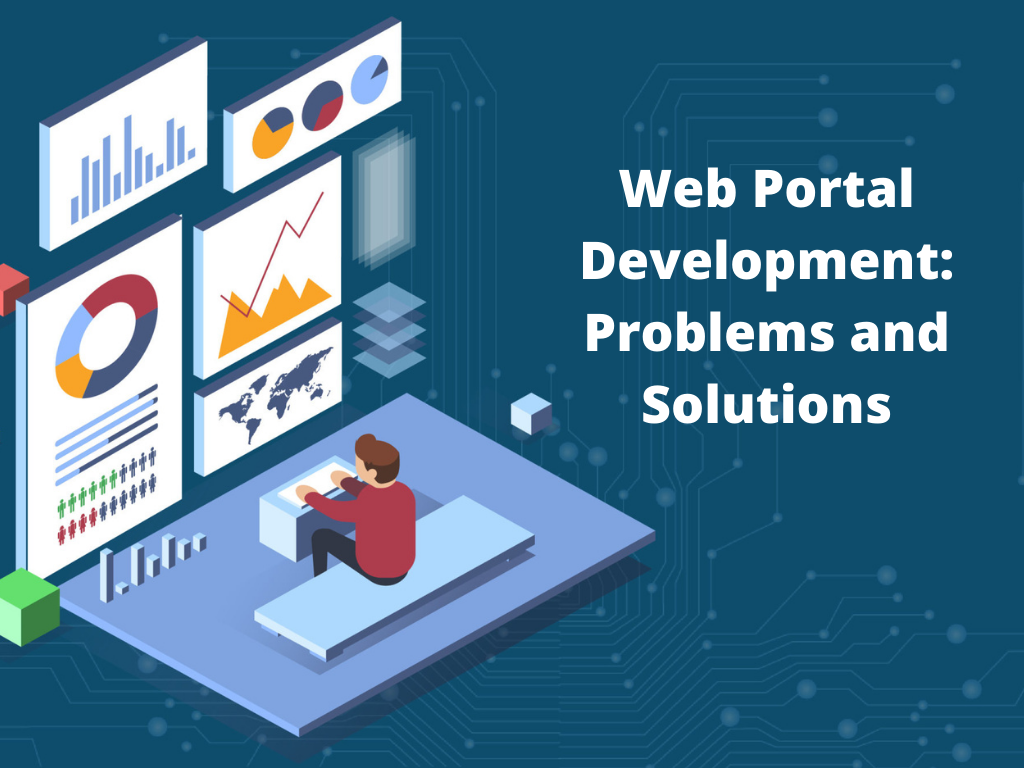
How You Can Benefit From Web Portal Creation
It doesn't really matter for what industry you need a web portal, because all of them offer the key essential benefits:
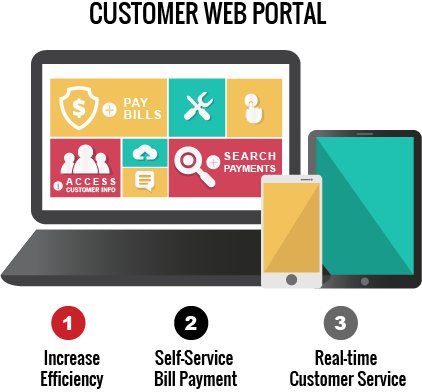
Things To Consider When Developing a Web Portal
In order to survive and thrive in a digitally savvy marketplace, businesses need a variety of customer portals to enable self-service, improve access to information, and improve customer experience. Aside from these functions, a successful web portal must be easy to use, personalized and adaptable to the needs of the users. With the help of Civenty, it’s more than possible. When we build a web portal, we do it with your customers in mind. Having extensive experience in creating web portals of different complexity, our team will help you choose the best solution for your needs. When creating a web portal, we pay attention to the following things:
Takeaways
Implementing a web portal starts with a detailed examination of your business situation and involves choosing the right portal type, elaborating a portal’s functionality and selecting a technological stack. Information is exhaustingly infinite and various, but addressing any of your questions or doubts to a specialist will save you time, effort, and resources in the final end. Civenty is a team of experts and specialists in the field of web portal development. The issue you might have been fighting with for several months can turn into a 2 –week-task if we manage it in Civenty. Customized solutions, individually tailored content, personalized approach, and professionalism - that’s what makes Civenty the ideal match for your business goals and objectives.
Our team is ready to talk to you about your project and we look forward to discussing your specific requirements or to answer any questions you may have.